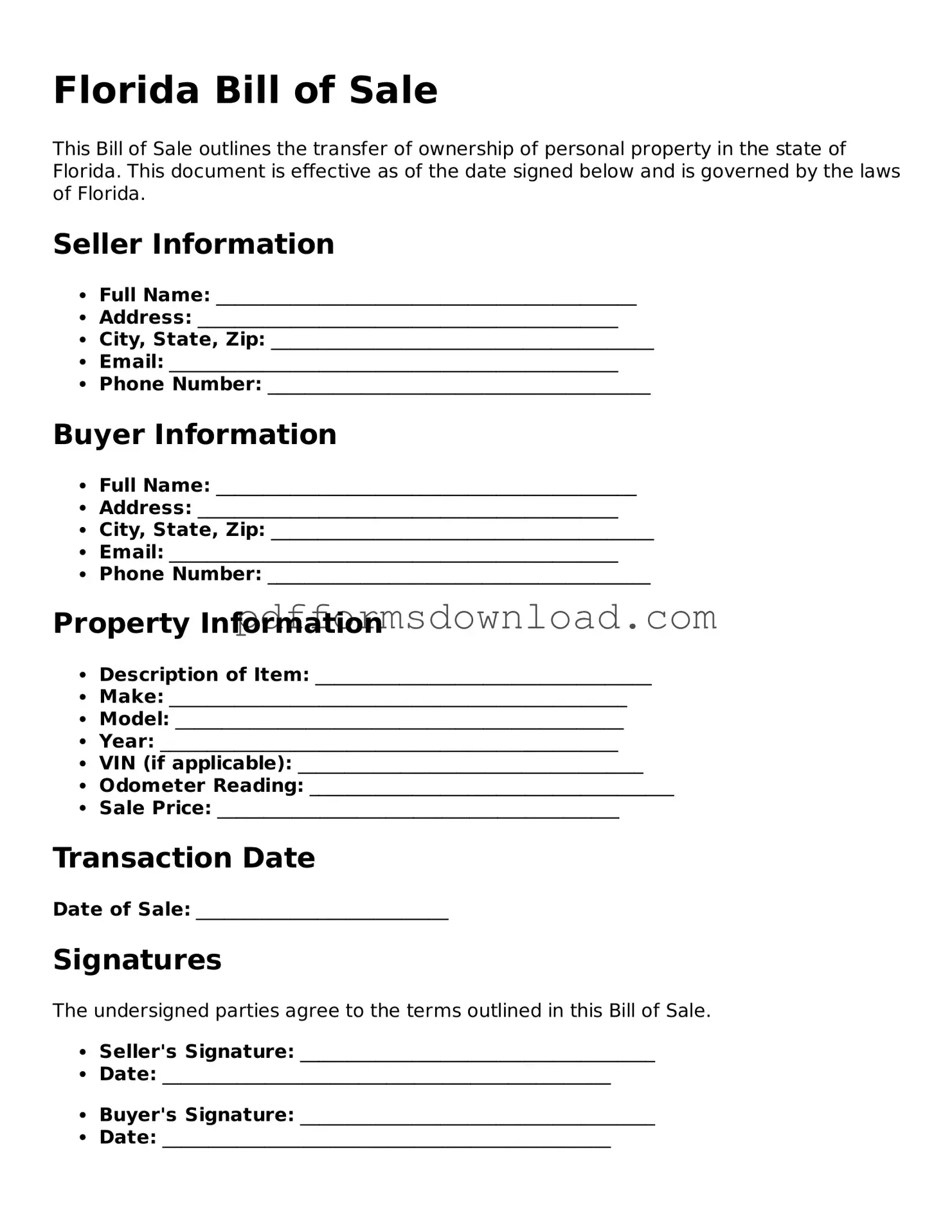What is a Florida Bill of Sale?
A Florida Bill of Sale is a legal document that records the transfer of ownership of personal property from one person to another. It provides proof of the transaction and details about the item being sold, including its description, purchase price, and the names of the buyer and seller.
When do I need a Bill of Sale in Florida?
A Bill of Sale is typically needed when selling or buying items such as vehicles, boats, or other valuable personal property. It is especially important for transactions that require registration or titling, such as motor vehicles and trailers.
Is a Bill of Sale required by law in Florida?
While a Bill of Sale is not legally required for all transactions in Florida, it is highly recommended. It serves as a record of the sale and can protect both the buyer and seller in case of disputes or legal issues in the future.
What information should be included in a Florida Bill of Sale?
A Bill of Sale should include the following information: the names and addresses of both the buyer and seller, a detailed description of the item being sold (including VIN or serial number if applicable), the purchase price, the date of the transaction, and any warranties or conditions of the sale.
Do I need to have the Bill of Sale notarized?
Notarization is not required for a Bill of Sale in Florida, but it can add an extra layer of security and authenticity to the document. If you choose to have it notarized, both parties should be present during the signing.
Can I create my own Bill of Sale in Florida?
Yes, you can create your own Bill of Sale in Florida. It is important to ensure that it includes all necessary information and is clear and concise. There are also templates available online that can help guide you in creating a valid document.
What should I do with the Bill of Sale after the transaction?
After the transaction, both the buyer and seller should keep a copy of the Bill of Sale for their records. The buyer may need it for registration or titling purposes, while the seller should retain it as proof of the sale.
Is a Bill of Sale the same as a title transfer?
No, a Bill of Sale is not the same as a title transfer. While the Bill of Sale documents the sale, the title transfer is the official process of changing ownership with the state, which may require additional paperwork and fees.
What happens if I lose my Bill of Sale?
If you lose your Bill of Sale, you can create a replacement document, but it may not have the same legal weight. If possible, try to obtain a copy from the other party involved in the transaction. Keeping digital copies can also help prevent future loss.

